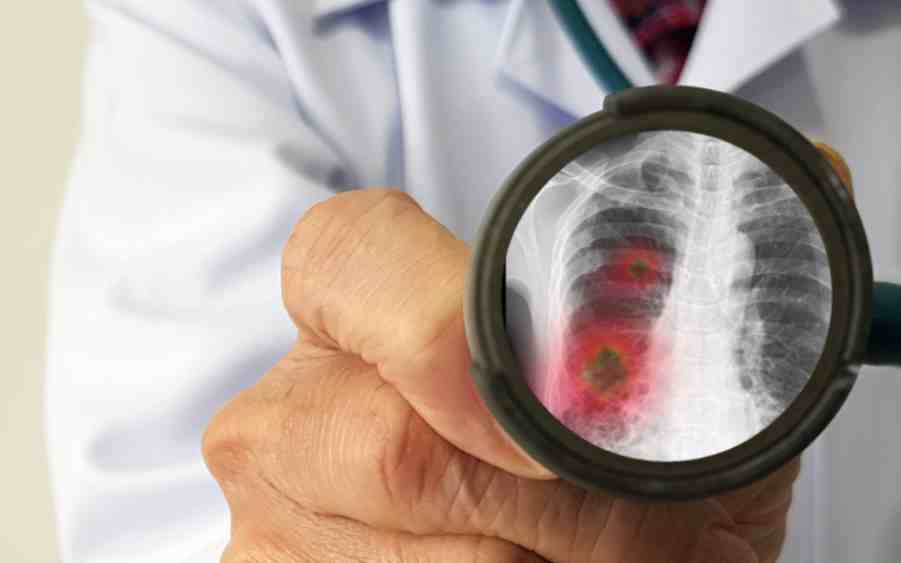
Pneumonia, experts warn: it's not just COVID-19
12 November was World Pneumonia Day, established in 2018, a century after the 1918 influenza pandemic that caused almost 100 million deaths, with the aim of turning the spotlight on this all too often underestimated disease
The scientific journal The Lancet has published the data and reflections of five leading international experts.
The state of play on the management and treatment of community pneumonia
It is a lung infection caused by bacteria and viruses, such as the seasonal flu virus, which remains one of the leading causes of non-COVID-19 pneumonia.
The most common cause is Streptococcus pneumoniae, known as pneumococcus, a bacterium normally found in the nose and pharynx, which under certain conditions and in some people can lead to severe respiratory infections with systemic effects extending to other organs.
In particular, the people most at risk of community pneumonia are children under 5 years of age, the over-65s, people who are immunosuppressed due to illnesses or immunosuppressive therapies, as well as smokers and ex-smokers who have a more compromised respiratory system, alcoholics, those who have had previous pneumonia or those who suffer from asthma and COPD (chronic obstructive pulmonary disease).
New therapies against antibiotic resistance
The timely administration of specific oral or systemic antibiotics is essential for the treatment of community-acquired pneumonia; however, due to immune resistance acquired by the population to antibiotics through past overuse (antibiotic resistance), the effectiveness of treatment may be limited in some people.
Therefore, the scientific community is seeking treatments to support antibiotic therapy such as monoclonal drugs and immune stimulating factors.
Long-term effects of pneumonia
Due to the lack of information about the effects of pneumonia, which have been known for years, many people think that the disease resolves itself with antibiotics without potentially leaving any sequelae.
In reality, pneumonia is a real shock to the respiratory system, which can have major effects in the most fragile patients.
The long-term complications caused by the inflammatory cascade in patients discharged after hospitalisation for pneumonia are cardiovascular (stroke, heart attacks, arrhythmias, thrombosis), neurological (delirium, dementia, cognitive disorders) and musculoskeletal, and are often responsible for high mortality one year after discharge.
In addition, misinformation on prevention, together with delays in diagnosis, management and treatment of post-hospitalisation complications of pneumonia weigh heavily on the costs of national health systems worldwide.
Pneumonia: the prevention decalogue
The pneumococcal and influenza vaccines, which are free for children, the over 60s and the population at risk, are the main effective preventive weapon against community-acquired pneumonia and its consequences.
- Ask your doctor how to join the free pneumococcal and flu vaccination campaign (the anti-COVID-19 vaccine does not protect against non-COVID-19 pneumonia).
- Wash your hands often and make sure you always sanitise them before eating, touching your eyes and mouth.
- Sneeze and cough into your disposable handkerchief or elbow crease.
- Throw away disposable tissues after use, do not reuse them, do not place them on surfaces, especially if shared with other people.
- Follow a healthy and active lifestyle.
- Care for your diet to keep your immune system strong.
- Avoid active or passive cigarette smoking.
- Limit alcohol consumption and avoid binge drinking.
- Change the air in your home/work environment frequently.
- Do not take antibiotics without a doctor’s advice.
Why talk about community pneumonia
Pneumococcal pneumonia is the leading cause of infection of the lower respiratory tract and affects people of all ages, countries, genders and incomes.
In 2015, 291.8 million people were affected by lung infections, 336.5 million in 2016: however, over the past 20 years, there has been little change in the way community pneumonia is treated and managed.
However, thanks in part to the progress made during the COVID-19 period, the scientific community has found that improving the timing of diagnosis, management of complications, antibiotic therapy and planning long-term follow-up is as important as informing people about the problem and involving the community in prevention.
Read Also:
FDA Approves Recarbio To Treat Hospital-Acquired And Ventilator-Associated Bacterial Pneumonia
Deadlier Than COVID-19? Unknown Pneumonia Discovered In Kazakhstan
COVID-19, Harvard Medical School Study On The Biphasic Course Of Infection


